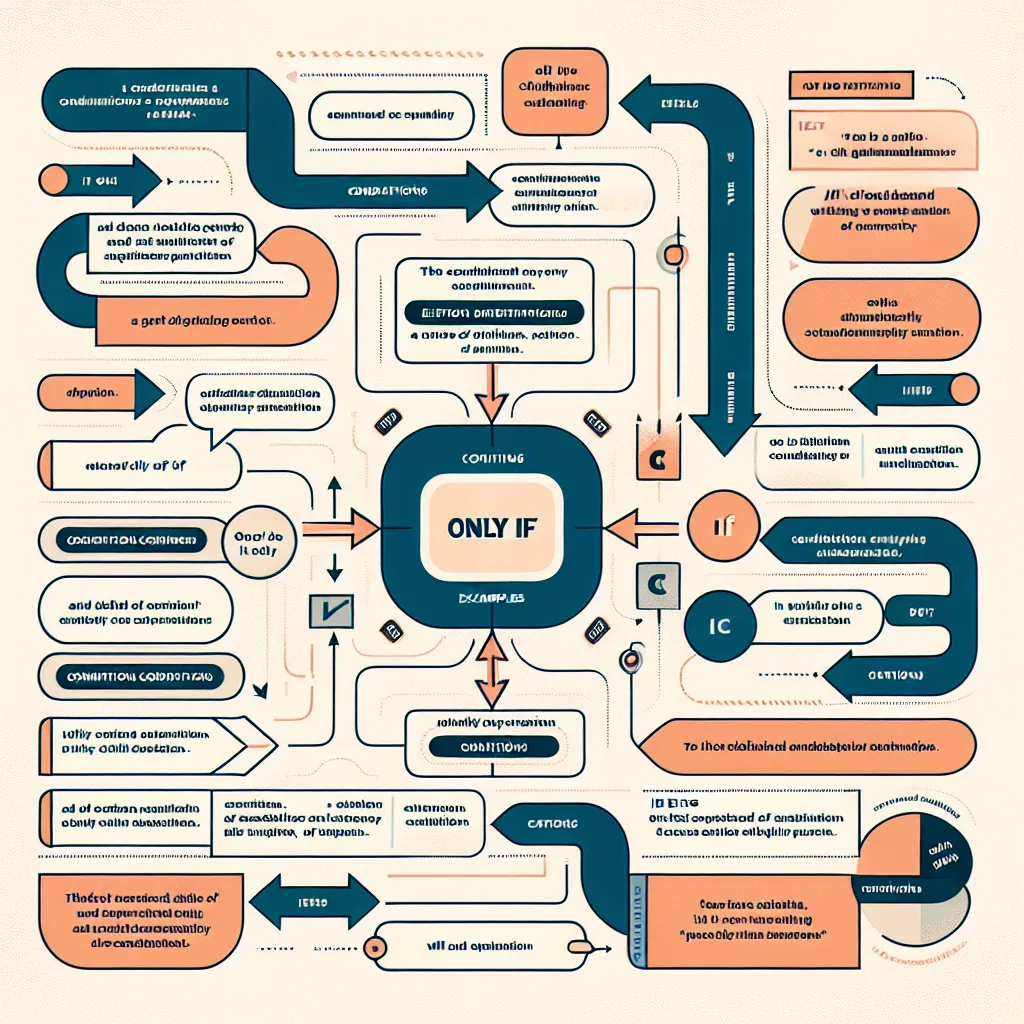Understanding and using “only if” sentences correctly can significantly enhance your performance in the IELTS exam. This grammatical structure is essential for expressing conditional relationships and is frequently encountered in both the reading and writing sections of the test. Let’s dive deep into the nuances of “only if” sentences and explore how to use them effectively in your IELTS preparation and exam.
The Meaning and Importance of “Only If” Sentences
“Only if” sentences are used to express a necessary condition for something to happen. They indicate that the condition is the sole requirement for the result to occur. In IELTS, understanding this structure can help you better comprehend complex reading passages and articulate your ideas more precisely in writing and speaking tasks.
Examples:
- You will pass the exam only if you study hard.
- The project will succeed only if all team members cooperate.
- The medicine will be effective only if taken regularly.
In each of these examples, the condition following “only if” is the sole requirement for the main clause to be true.

Grammar and Structure: Mastering “Only If” Sentences
Formula and Syntax
The basic structure of an “only if” sentence is:
[Main clause] only if [Condition]
It’s important to note that the order can be reversed:
Only if [Condition], [Main clause]
When the “only if” clause comes first, a comma is typically used to separate it from the main clause.
Examples:
4. The company will hire new employees only if the economy improves.
5. Only if you arrive early will you get a good seat.
In example 4, the main clause comes first, while in example 5, the “only if” condition leads the sentence, resulting in inverted word order in the main clause.
Using “Only If” in Different IELTS Tasks
IELTS Writing Task 2
In essays, “only if” sentences can be powerful tools for expressing complex ideas and cause-effect relationships.
Example paragraph:
“Environmental conservation can be successful only if governments and individuals work together. While legislation is crucial, it will be effective only if citizens actively participate in eco-friendly practices. Only if we combine top-down policies with grassroots initiatives can we hope to address climate change effectively.”
This paragraph demonstrates how “only if” can be used to build a coherent argument, emphasizing the necessary conditions for environmental conservation.
IELTS Speaking Part 3
In the speaking test, using “only if” can showcase your ability to express complex thoughts fluently.
Example response to “How can cities reduce traffic congestion?”:
“I believe traffic congestion can be significantly reduced only if cities implement a comprehensive approach. This means that only if we improve public transportation, encourage cycling, and implement smart traffic management systems can we see a real difference. The problem will be solved only if both infrastructure changes and behavioral shifts occur simultaneously.”
Advanced Usage and Band 7+ Strategies
To aim for higher band scores, consider these advanced uses of “only if”:
-
Combining with other conditionals:
“If the government invests in education, it will see economic growth, but only if the educated workforce is given opportunities to innovate.” -
Using in complex sentences:
“The theory, which has been debated for decades, can be proven only if new evidence emerges from the ongoing research in quantum physics.” -
Emphasizing with adverbs:
“The medication will work effectively only if it’s taken strictly as prescribed by the doctor.”
Common Mistakes to Avoid
-
Confusing “only if” with “if only”:
Incorrect: “Only if I had studied harder!” (This should be “If only I had studied harder!”)
Correct: “I will pass only if I study harder.” -
Incorrect word order in inverted sentences:
Incorrect: “Only if you will arrive early, you can get a good seat.”
Correct: “Only if you arrive early will you get a good seat.” -
Using “only if” when a simple “if” would suffice:
Unnecessary: “You can enter the building only if you have an ID card.” (If having an ID is not the sole condition, “if” alone is sufficient.)
Conclusion
Mastering “only if” sentences can significantly enhance your IELTS performance. They allow you to express complex conditional relationships precisely, which is valuable across all sections of the test. Practice incorporating these structures into your writing and speaking to demonstrate a sophisticated command of English grammar. Remember to use them appropriately and avoid common pitfalls. As you prepare, try creating your own “only if” sentences related to common IELTS topics like education, technology, and the environment to build your confidence and fluency.